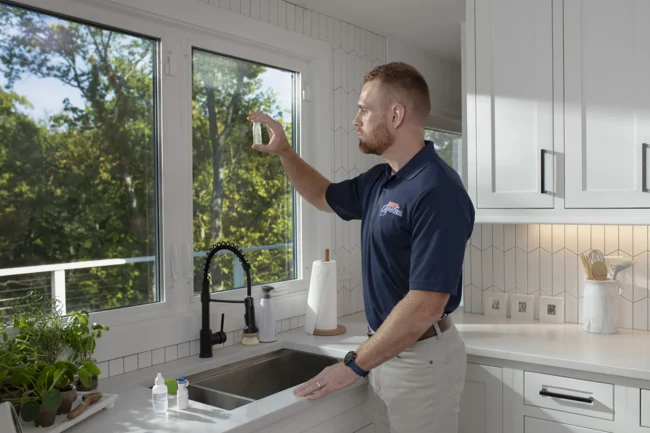Clean, safe water is essential for health and everyday living. Yet many homeowners are surprised to learn just how many contaminants can exist in tap water. From invisible chemicals like PFAS to common additives like chlorine, water quality can vary greatly depending on your source. This is where water filtration becomes crucial.
What Affects Water Quality?
Your water may come from a municipal supply or a private well, but both can contain a range of contaminants, including:
PFAS (Per- and Polyfluoroalkyl Substances)

PFAS are synthetic chemicals found in everything from nonstick cookware to firefighting foam. These “forever chemicals” do not break down in the environment and have been linked to health issues like hormone disruption, cancer, and immune system suppression. PFAS are not always removed by standard municipal treatment systems, which makes a home water filtration system a smart investment.
Fluoride
Fluoride is added to many city water systems to promote dental health. While some support its benefits, others prefer to limit fluoride exposure due to potential risks with high intake over time. A reverse osmosis filter is one of the most effective ways to remove fluoride from drinking water.
Chlorine
Chlorine is commonly used to disinfect municipal water. It kills harmful bacteria, but it can also leave an unpleasant taste and smell. Some studies suggest long-term chlorine exposure may cause respiratory issues or contribute to skin irritation. Carbon filters are typically effective at removing chlorine and improving taste and odor.
Sediment and Rust
If you notice particles floating in your water or see staining on your fixtures, you may have sediment, rust, or other solids in your supply. This is especially common with older pipes or well water systems. Sediment filters are the first line of defense, preventing larger particles from damaging appliances or entering your drinking water.
Other Common Contaminants
- Lead from old pipes and plumbing fixtures
- Pesticides and herbicides from agricultural runoff
- Microorganisms such as bacteria and parasites in untreated or compromised water systems
How Water Filtration Systems Help
Water filtration systems are designed to target specific contaminants. Depending on your needs, you may use one or more of the following:
- Activated carbon filters – Great for removing chlorine, bad odors, and some organic chemicals
- Reverse osmosis systems – Effective at removing PFAS, fluoride, lead, and other dissolved contaminants
- UV purification – Kills bacteria, viruses, and other pathogens
- Sediment filters – Trap sand, silt, rust, and other solids
A professional plumber in San Luis Obispo can assess your home’s water supply and recommend the right filtration setup, especially if you’re concerned about hard water or aging pipes.
Why Work with a Professional Plumber?
Water filtration isn’t just about buying a pitcher or faucet attachment. Whole-home systems, under-sink units, and advanced multi-stage filters require proper installation. A licensed plumber will ensure the system is correctly integrated with your plumbing and operating efficiently.
If you’re located on California’s Central Coast, consider reaching out to a plumber in Monterey for expert guidance and installation of water filtration systems tailored to your local water conditions.
Homeowners further south may benefit from consulting a plumber in Salinas, particularly if you rely on well water or live in agricultural areas where pesticide runoff may be a concern.
For expert water filtration services, trust Roto-Rooter to install and maintain the right system for your home—ensuring cleaner, safer water free from PFAS, chlorine, fluoride, sediment, and other contaminants.